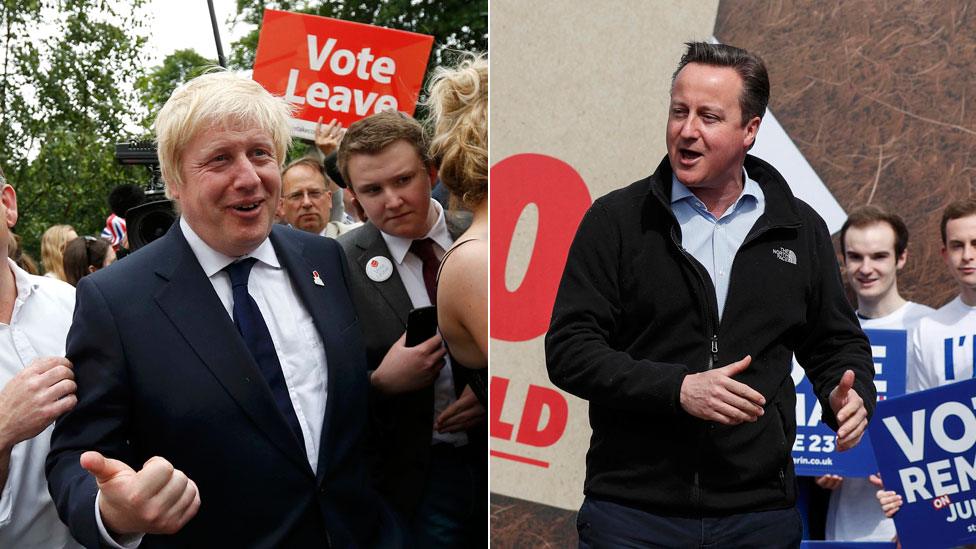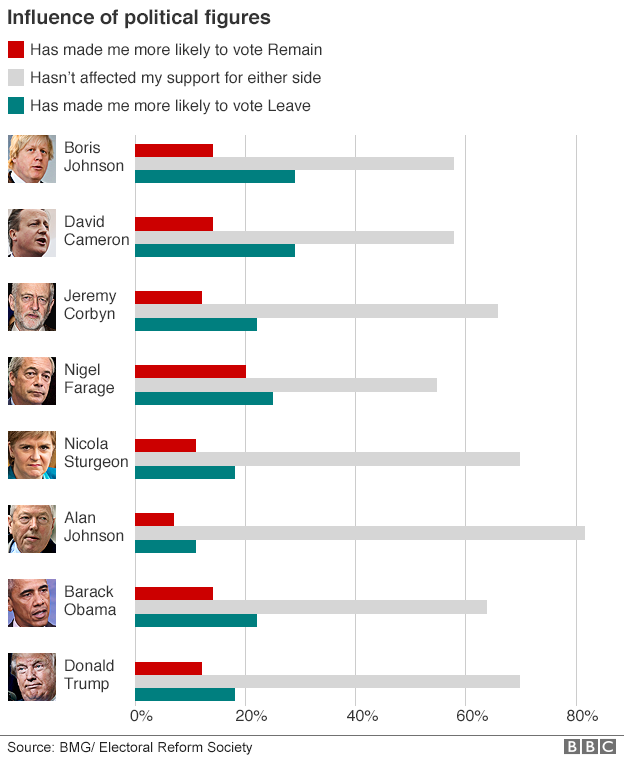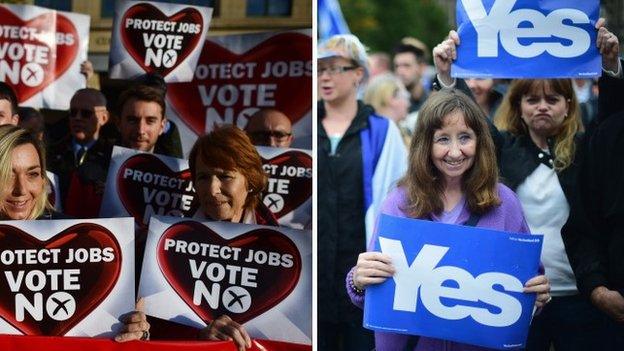'Glaring deficiencies' in EU debate, Electoral Reform Society says
- Published

The EU referendum campaign was dogged by "glaring democratic deficiencies" with voters turned off by big name politicians and negative campaigning, a report says.
The Electoral Reform Society attacked both sides of the referendum campaign, saying people felt "ill-informed" by the "dire" debate.
The society said the impact of political leaders had been "minimal".
It called for a "root and branch" review of the way referendums are run.
Recommendations made by the society in its report, external include having a public body intervene when "misleading" claims are made by campaigns, reviewing broadcasters' role and publishing a "rule book" to govern conduct by campaigns.
They also propose that future referendums have a guaranteed six month official campaign, and citizenship education be extended in schools with the voting age reduced to 16.
The UK voted to leave the EU on 23 June by 51.9% to 48.1%.
The then prime minister David Cameron and the government backed a Remain vote, while the Leave campaign was fronted by ex-mayor of London Boris Johnson, who is now foreign secretary.
The Electoral Reform Society, which campaigns for "democratic reform", said its polling showed Mr Cameron and other political "big beasts" had failed to convince the public.
When asked about eight prominent politicians, most people said they had had no effect on the way they voted.
The only high-profile figures who, according to the poll, persuaded more voters of their position than drove them to vote the other way were Boris Johnson, Nigel Farage and US presidential candidate Donald Trump, who backed Brexit.
"Above all, what these numbers tell us is that people had by and large lost faith in established political figures as opinion-leaders - except where those figures might be said to be kicking against the establishment," the society said.

'Highly negative'
It said voters had viewed both sides as increasingly negative, and many "simply did not trust" their key claims. These included Remain saying households would be on average £4,300 a year worse off outside the EU and Leave claiming an extra £350m a week could be spent on the NHS.
The government's controversial mail-shot to every household in the UK had "little effect on people's levels of informedness", it said, and towards the end of the campaign nearly half of voters thought politicians were "mostly telling lies".
The society said the EU debate was in "stark contrast" to the 2014 referendum on Scottish independence, which it said had featured a "vibrant, well-informed, grassroots conversation that left a lasting legacy of on-going public participation in politics and public life".

Almost 85% of the electorate took part in the Scottish referendum
The society's chief executive Katie Ghose said: "This report shows without a shadow of a doubt just how dire the EU referendum debate really was.
"There were glaring democratic deficiencies in the run-up to the vote, with the public feeling totally ill-informed. Both sides were viewed as highly negative by voters, while the top-down, personality-based nature of the debate failed to address major policies and issues, leaving the public in the dark."
On the plus side, the society said it had heard "time and again" from people who felt the referendum was the first time their vote "had truly counted".
Electoral Reform Society calls for 'at least six months' for campaigns
But it said there were "serious questions" to be asked about the place of referendums in politics, including how they sit alongside the parliamentary system and how to ensure a "high quality" debate.
Ms Ghose added: "Now that the dust is starting to settle after the EU referendum, we need a complete rethink about the role of referendums in the UK. They are becoming more common, but the piecemeal nature of the how, when and why they're done means we could simply end up jumping from referendum to referendum at the whim of politicians."
BMG Research polled over 1,000 UK-based adults every month from February until the end of the campaign for the Electoral Reform Society's report.
The Cabinet Office said: "The British people spoke decisively at the referendum, with one of the highest turnouts of any vote seen in a UK-wide poll in a generation.
"They voted to leave the European Union - and this government will deliver on the people's verdict."